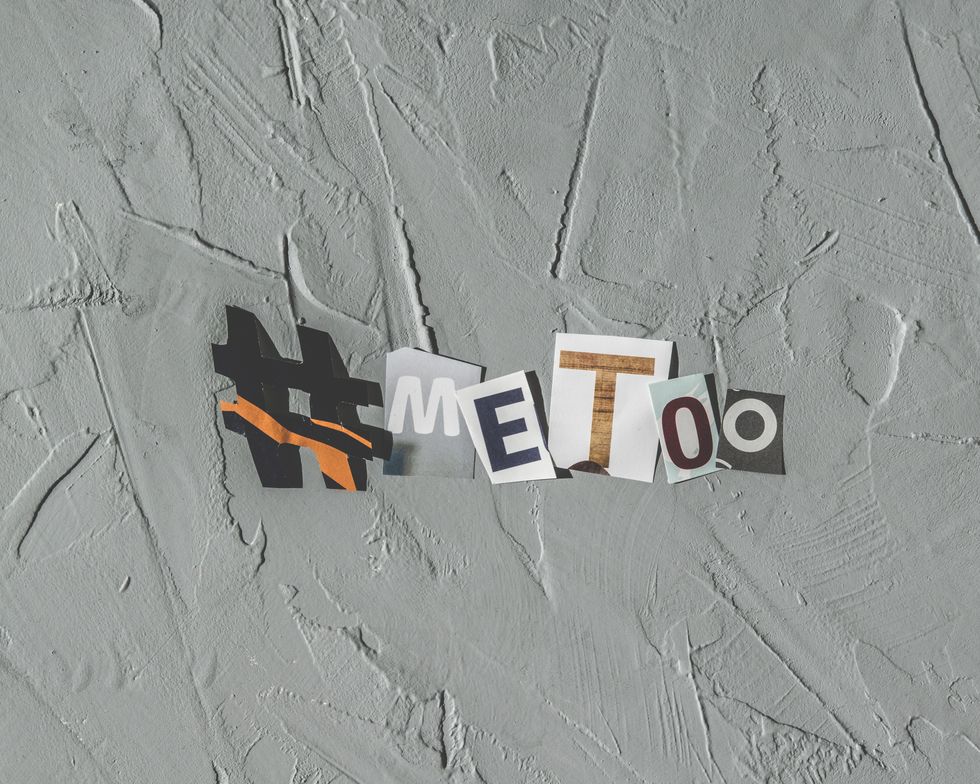Since the dawn of industries to adopt co-ed workplaces, workplace romance has been a controversial notion. Occasionally, people meet at work and sometimes those pairings lead to an intimate relationship and even marriage.
However, it is the fine line between romance and harassment that is heavily touched upon in Katty Kay's BBC article, addressed to the female members of the #MeToo movement in December last year. In summary, the article examines the natural traces of societal hesitation and anxiety that accompanies drastic movements such as the massive #MeToo campaign in how it affects all aspects of the working, public sector of industries.
Kay's article cautions not against victims coming forward to accuse their attackers demeaning workplace sexual harassment or assault, rather she speaks to the fear that one false accusation may cause all #MeToo progress to come crashing down.
The phobias addressed in the article are listed as the possible negative consequences or potential backlash to women and men coming out and releasing their stories of dignity-robbing or harassing behavior they experienced at work. Kay states that for as constructive as this powerful wave of influence is depicted in the media, and the sincerity to which companies are willing to terminate high ranking members, this capability could be swiftly taken away if taken too far.
The article expressed a growing fear that the sexual harassment accusations may go too much to one end, and that it may only take one false accusation against one too-well-received icon to be bungled for the entirety of the #MeToo movement’s progress to be immediately revoked and shamed in the public eye.
For the unaware, sexual harassment is defined by quid pro quo favors or offers between a supervisor and a subordinate, telling the victim that if they comply or perform a task for them then they will be compensated by the supervisor or within the company. Meanwhile, a hostile work environment is a case of sexual harassment wherein the organization’s culture "shifts in place" around the coworkers who are participating in the harassing act against a specific victim.
In effect, the workplace unknowingly allows sexual harassment to thrive, in the Weinstein case, this included allowing out-of-work meetings to take place under the promise of female minute writers or secretaries being present. It is when Weinstein asked these women to leave the room that a hostile environment was created since they did not report this behavior due to unhealthy pre-established company culture.
Most workplace research on romance in the office agrees that there is a fine line between harassment and other harmless or positive socio-sexual behavior, (or behavior that can be perceived as not work-related by means of intent of the sender and affect of the receiver). It makes each case difficult, especially when a behavior exhibited to one individual may be perceived as harassment while to another it may be harmless or even humorous. Instances of compliments and touch may fall into the gray zone, for it depends on the content of the words spoken, or where the touch was placed.
The Kay article’s central claim hovers over whether the sexual harassment movement may go too far into one side of the reporting and accusation end to blindly follow any victim’s story, which often lack in physical evidence, photographs, or witnesses, largely and understandably due to the nature of the sensitive topic. Yet, the case against then-presidential candidate Donald Trump proves unique among these circumstances since there was auditory evidence regarding how he saw members of the opposite sex.
The claim is made that too many accusations against a wide range of harassers will isolate those accused and eventually lead to those in power (like the businesses firing the accusers) to not work with victims or attempt to drain the issue. Rather these businesses may simply make hiring changes among rising, women recruits, or refrain from isolating supervisors with their subordinates. This then destroys any gains the #MeToo movement is striving for.
An example of this the article hints at is the case in South Korea, known informally as the Pence ruling, which prohibits male coworkers or supervisors from isolating themselves with women.
My own thoughts on this article concerned the implementations of false accusations that Kay speaks to. I do agree that there needs to be an equal weighing system against the stories of sexual harassment coming from the victims that must be equal and impartial, however, I believe Kay overlooks the fact that the #MeToo movement is still in its infancy.
Due to this, I think that is expected for accusations to seem like they go too far, when in reality this is uncharted territory. I believe any landmark social change will always come with its natural tips and ebbs in the larger scale of fairness.
Another social movement could site would be the need for political correctness, born from the cultural realization that certain words, phrases, and ways of thinking are outdated, no longer acceptable in formal speech, and/or do not accurately represent the state of society today.
This may, at times, go too far when methods or freedoms of speech are officially taken away from individuals who may otherwise feel restricted by lack of education to explain their ideas and feel muzzled by their peers.
On the other hand, no political correctness at all will restrict people’s freedoms to speak or voice their opinion. The sexual harassment realization is, in my opinion, precisely the same case wherein it may go to certain extremes that may kill the honeymoon and put it under scrutiny. But #MeToo will never fade away, no matter how marred in "false accusations" it turns up, so long as real cases persist.




 StableDiffusion
StableDiffusion StableDiffusion
StableDiffusion StableDiffusion
StableDiffusion Photo by
Photo by  Photo by
Photo by  Photo by
Photo by 
 Photo by
Photo by  Photo by
Photo by  Photo by
Photo by  Photo by
Photo by  Photo by
Photo by 











